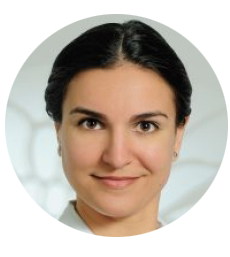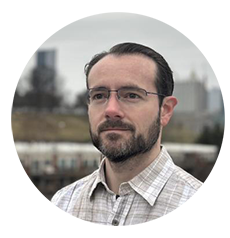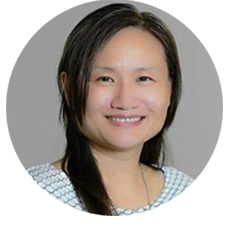

2024 BRAIN NeuroAI Workshop
Natcher Conference Center, Bethesda, Maryland
Organizers
Home | Registration | Program Book | Agenda | Speakers | Organizers | Logistics
Scientific Planning Committee

Anthony Zador, MD, Ph.D.
The Alle Davis and Maxine Harrison Professor of Neurosciences
Dr. Zador received his MD and Ph.D. from Yale in 1994, where his focus was theoretical neuroscience and neural networks. He then did postdoctoral research in synaptic physiology at the Salk Institute in La Jolla, California. In 1999, he joined the faculty at Cold Spring Harbor Laboratory in New York, where he is now the Alle Davis Harris Professor of Biology and served as Chair of Neuroscience from 2008-2018. The goal of his research is to understand the computational principles whereby neural wiring enables complex behavior. His laboratory pioneered the use of rodents in complex sensory decision tasks, and also developed a revolutionary approach to determining brain wiring using high-throughput DNA sequencing. His current research interests include applying neuroscience to usher in the next generation of Artificial Intelligence.

Doris Tsao, Ph.D.
Professor of Neurobiology and Molecular Cell Biology at University of California, Berkeley
Dr. Tsao is a professor in the Department of Neuroscience at UC Berkeley and a Howard Hughes Medical Institute Investigator. She studies visual perception in primates in order to understand how the brain creates our sense of reality. She is recognized for pioneering the use of fMRI with single-unit electrophysiological recordings and for discovering the macaque face patch system for face perception. She is a Howard Hughes Medical Institute Investigator. She won a MacArthur "Genius" fellowship in 2018. Tsao was elected a member of the National Academy of Sciences in 2020. In 2024 she was awarded a Kavli Prize in neuroscience (along with Nancy Kanwisher and Winrich Freiwald) for the discovery and study of specific areas in the brain that perform facial recognition.

Blake Richards, Ph.D.
Associate Professor, McGill University, School of Computer Science and Department of Neurology and Neurosurgery
Dr. Richards is an associate professor at the School of Computer Science and in the Department of Neurology and Neurosurgery at McGill University, and a core academic member of Mila – Quebec Artificial Intelligence Institute. His research lies at the intersection of neuroscience and AI. His laboratory investigates universal principles of intelligence that apply to both natural and artificial agents. He has received several awards for his work, including the NSERC Arthur B. McDonald Fellowship in 2022, the Canadian Association for Neuroscience Young Investigator Award in 2019, and a Canada CIFAR AI Chair in 2018. He was also a Banting Postdoctoral Fellow at SickKids Hospital from 2011 to 2013.

J. Brad Aimone, Ph.D.
Distinguished Member of Technical Staff in the Center for Computing Research at Sandia National Laboratories
Dr. Aimone is a leading researcher in leveraging computational neuroscience to advance artificial intelligence and in using neuromorphic computing platforms for future scientific computing applications. Brad currently leads a multi-institution DOE Office of Science Microelectronics Co-Design project titled COINFLIPS (which stands for CO-designed Influenced Neural Foundations Inspired by Physical Stochasticity) which is focused on developing a novel probabilistic neuromorphic computing platform. He also currently leads several other research efforts on designing neural algorithms for scientific computing applications and neuromorphic machine learning implementations. He received the Misha Mahowald Prize for Neuromorphic Engineering in 2023 and was a National Academy of Engineering US Frontiers of Engineering Invitee in 2017. Brad has published over 85 peer-reviewed journal and conference articles in venues such as Advanced Materials, Neuron, Nature Neuroscience, Nature Electronics, Communications of the ACM, and PNAS and he is one of the co-founders of the Neuro-Inspired Computational Elements, or NICE, conference.

Gina Adam, Ph.D.
Associate Professor, George Washington University, Department of Electrical and Computer Engineering
Dr. Adam is an associate professor with the Electrical and Computer Engineering department at George Washington University. Her group works on the development of emerging nanoelectronic devices and novel hardware foundations that will enable new ways of brain-inspired computing systems. She received her Ph.D. in electrical and computer engineering from the University of California Santa Barbara in 2015 and was a research scientist at the Romanian National Institute for Research and Development in Microtechnologies and a visiting scholar at École Polytechnique Fédérale de Lausanne before joining GWU. She was the recipient of an International Fulbright Science and Technology award in 2010, a Mirzayan fellowship at the National Academy of Engineering in 2012, a H2020 Marie Sklodowska-Curie grant from the European Commission in 2016, a NSF CRII award in 2020, an AFOSR Young Investigator Program award, and the NSF CAREER award in 2023.
NIH Brain NeuroAI Working Group Co-Organizers

Joseph D. Monaco, Ph.D.
Scientific Program Manager, NIH BRAIN Initiative
Joseph Monaco is a scientific program manager in the Office of the BRAIN Director, where he coordinates the BRAIN Initiative’s data sharing policy and provides guidance to BRAIN programs and transformative projects relating to theory, modeling tools, data integration, and artificial intelligence. He conducted theoretical and computational neuroscience research for over 20 years with a focus on the role of hippocampal circuits in spatial navigation and episodic memory. As a Postdoctoral Fellow and Research Associate at Johns Hopkins University, Dr. Monaco developed neurobehavioral analysis methods to link individual movements to memory formation in rats, built models of how brains compute with neural oscillations, and helped lead interdisciplinary collaborations to advance theoretical models for brain-inspired robotic control. He is a co-organizer of the 2024 BRAIN NeuroAI Workshop.

Grace M. Hwang, Ph.D.
Program Director, NIH/National Institute of Neurological Disorders and Stroke
Dr. Hwang is a Program Director at the National Institute of Neurological Disorders and Stroke, where she manages BRAIN Initiative projects in the Technologies for Neural Recording and Modulation portfolio. Before joining NIH, she was a Program Director at the National Science Foundation while based at Johns Hopkins University with appointments at the Applied Physics Laboratory and Kavli Neuroscience Discovery Institute. At NSF, Dr. Hwang managed the Disability and Rehabilitation Engineering program while spearheading cross-agency initiatives including the Emerging Frontiers in Research and Innovation's Brain-Inspired Dynamics for Engineering Energy-Efficient Circuits and Artificial Intelligence (BRAID) program topic. Her research at Johns Hopkins spanned neuroscience, artificial intelligence, neuromodulation, and brain-machine interfaces. She served as a Principal Investigator on an NIH BRAIN award to investigate neural stimulation using sonogenetics and on an NSF award to develop a brain-inspired algorithm for multi-agent robotic control. She is a co-organizer of the BRAIN NeuroAI Workshop.
NIH BRAIN NeuroAI Training Subcommittee
- Jessica Mollick, NIDA
- Courtney Pinard, NIMH
NIH BRAIN NeuroAI Neuroethics Subcommittee
- Nina Hsu, NINDS
- Jay Churchill, NIMH
NIH BRAIN NeuroAI Workshop Subcommittee
- Elizabeth Powell, NIAAA
- Merav Sabri, NIDCD
- Mohd Anwar, NIBIB
- Susan Wright, NIDA
- Roger Miller, NIDCD
- Bo-Shiun Chen, NINDS
- Pantea Moghimi, NINDS
- Sandra Molina, NINDS/OBD
- Leslie Osborne, NINDS
- Sudha Srinivasan, NINDS
- Clayton Bingham, NLM
- Michele Ferrante, NIMH
- Fernando Fernandez, NIMH
- Mauricio Rangel Gomez, NIMH
- Sandeep Kishore, NIMH
- Dana Schloesser, OBSSR
- Chris Kinsinger, OD